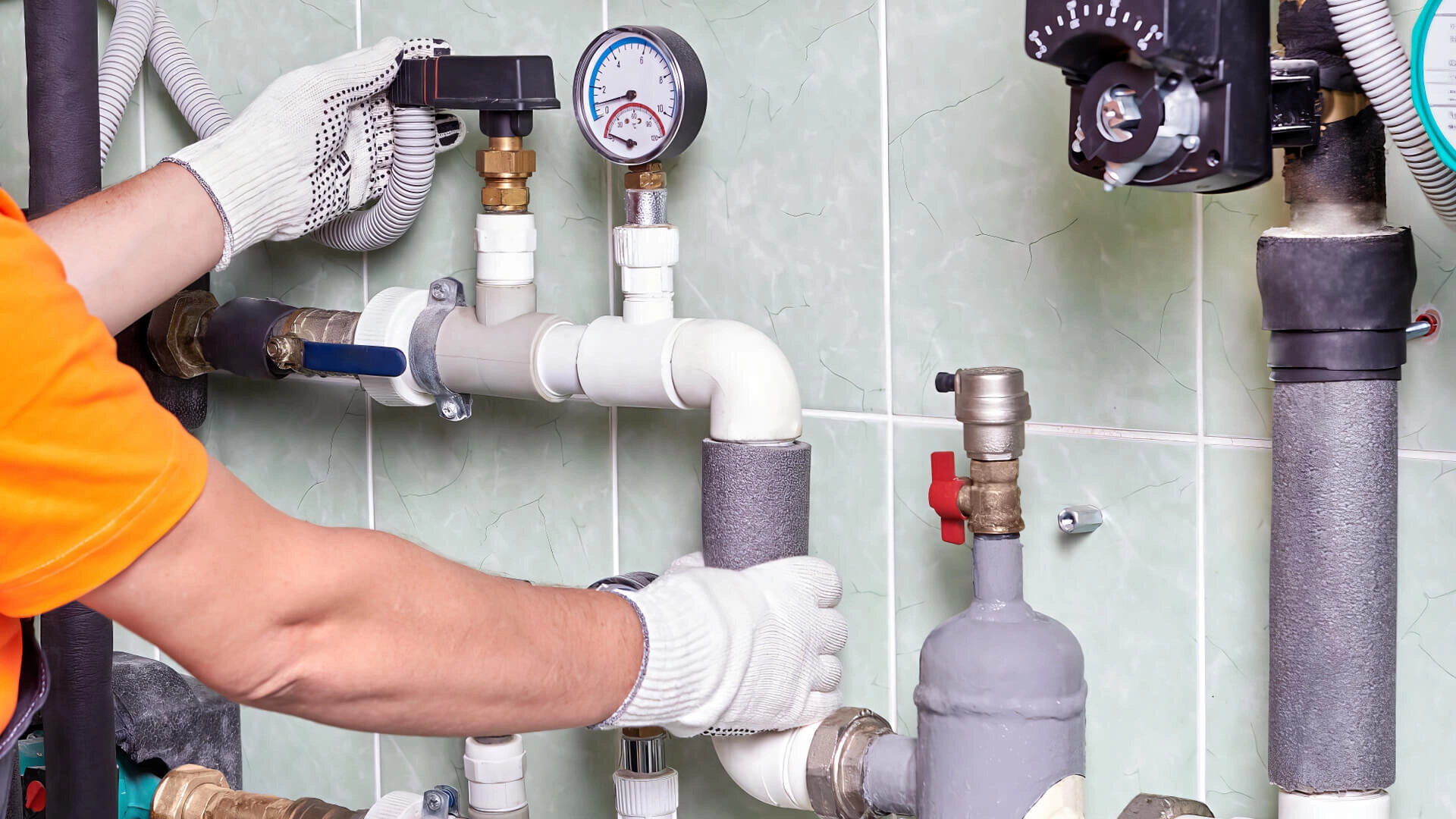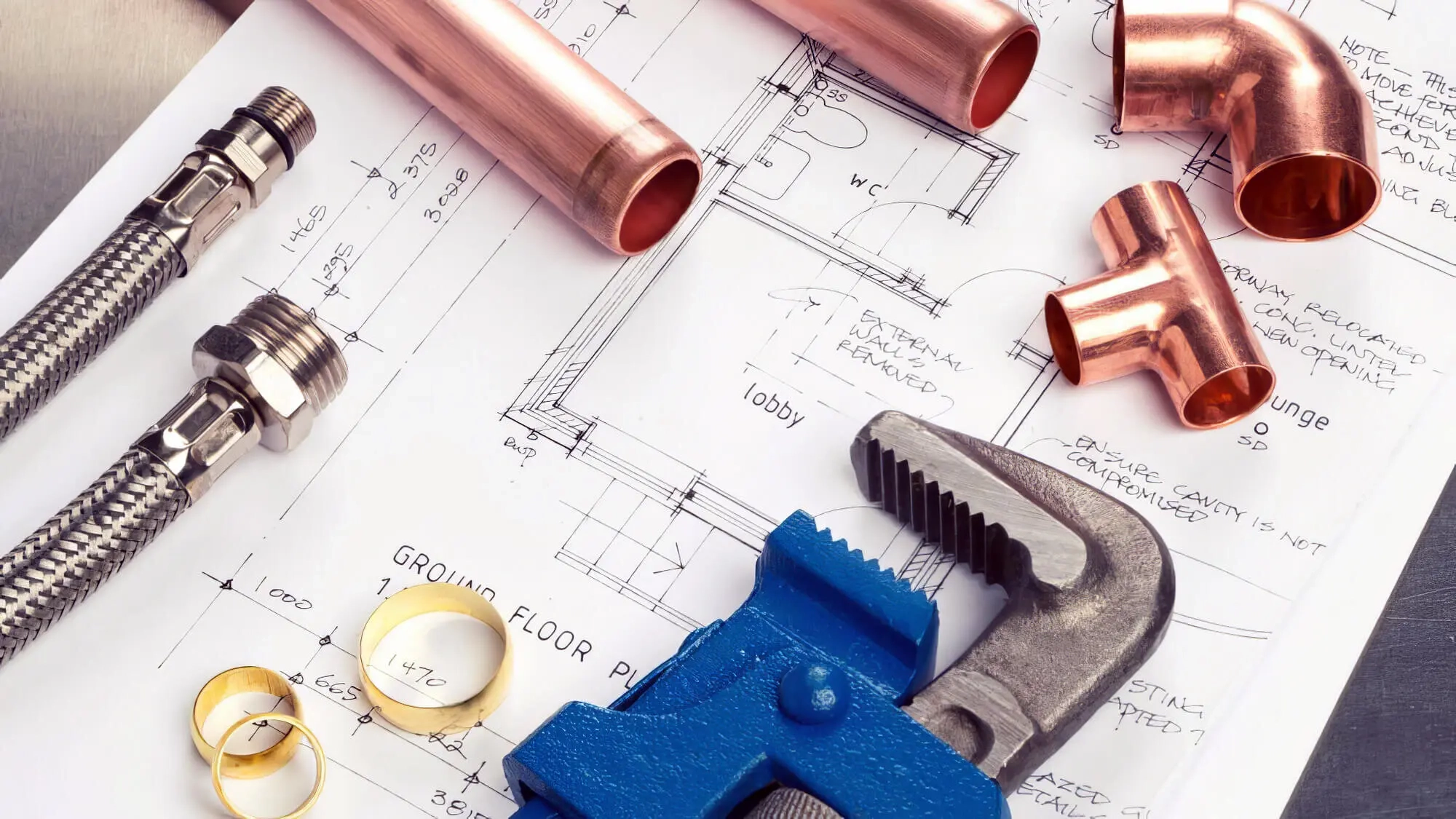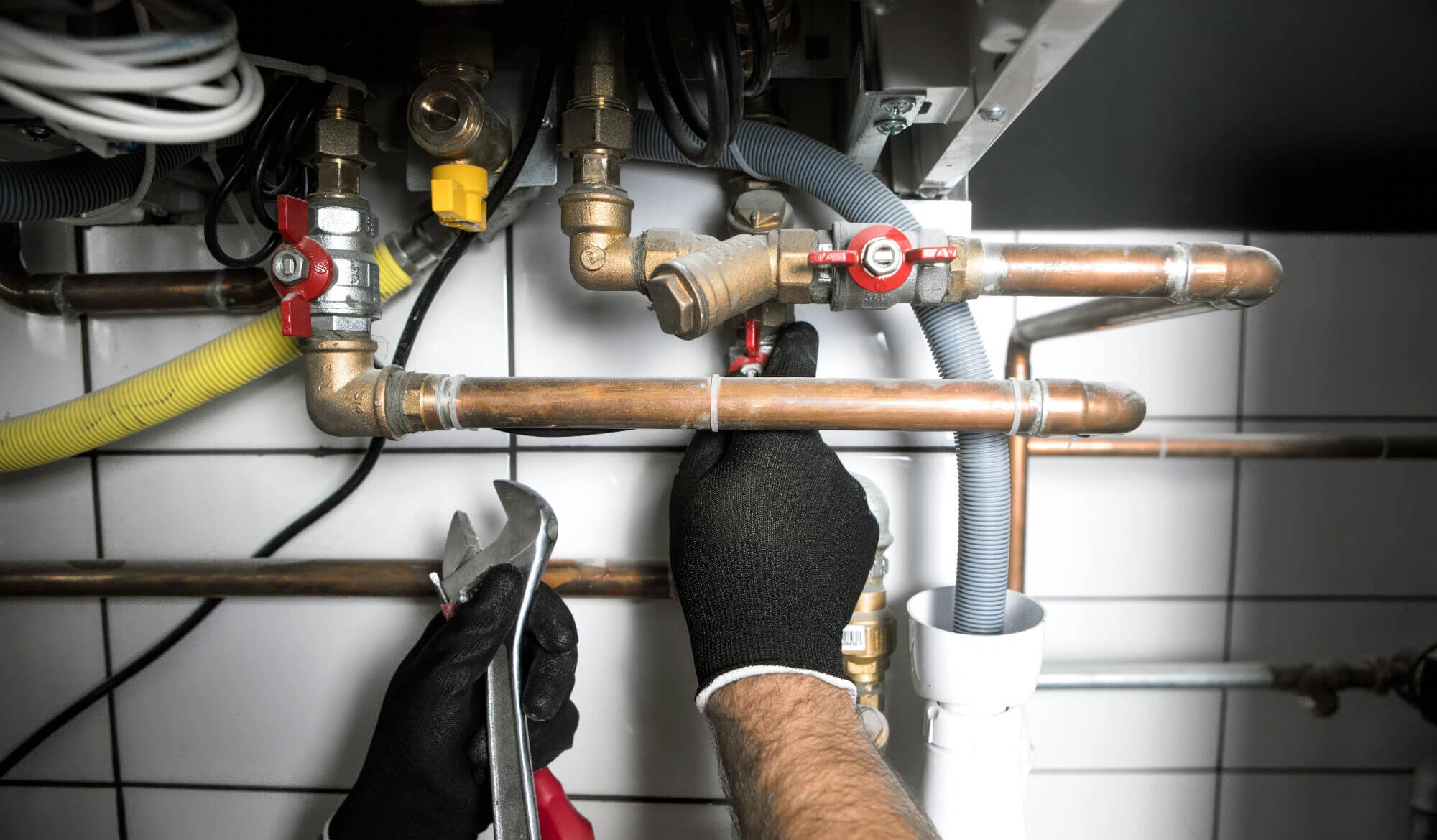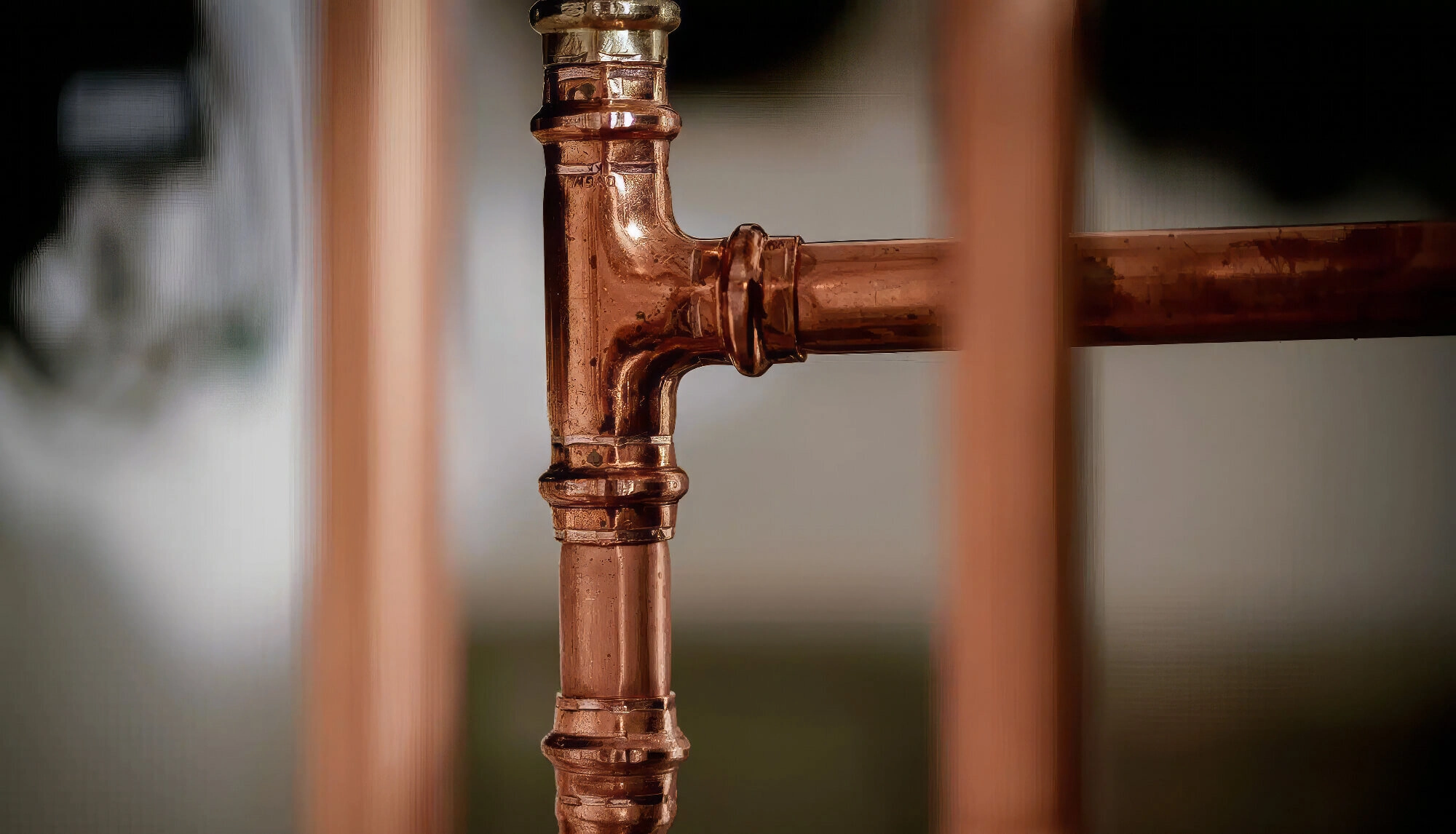Difference Between Residential and Commercial Plumbing
Explore the distinctions between residential and commercial plumbing in our comprehensive guide. From installation differences to service requirements, understand the unique aspects of each.
Plumbing is crucial in residential and commercial settings, ensuring water supply, sanitation, and overall functionality. While residential and commercial plumbing share the goal of delivering and removing water effectively, they also possess distinct characteristics that set them apart. Commercial plumbing often involves a larger-scale commercial plumbing system and more complex requirements than residential plumbing, necessitating skilled commercial plumbers to tackle commercial plumbing jobs efficiently. On the other hand, residential plumbers focus on the unique needs of homes, such as maintaining smaller pipes, fixing leaks, and ensuring the proper functioning of plumbing fixtures. Understanding the difference between a residential plumber’s role and a commercial plumber’s is essential for property owners, managers, and professionals.

This article will examine the unique features, challenges, and considerations that define residential and commercial plumbing, shedding light on the essential disparities between these two critical aspects of the plumbing industry. Exploring the roles of commercial and residential plumbers and the specific demands of each setting will give you valuable insights into the world of plumbing and appreciate the expertise required to keep our water systems running smoothly.
Let’s plunge right in!
Understanding Residential Plumbing
Residential plumbing is the backbone of every household, ensuring a steady supply of clean water and efficient waste disposal. Homeowners must understand residential plumbing to maintain a functional and safe living environment.
Key Components
Residential plumbing systems consist of several vital components. The main water supply line connects the home to the municipal water source or well, providing water for everyday use. From there, the water is distributed through a network of pipes, branching off into various fixtures such as sinks, toilets, showers, and appliances like washing machines and dishwashers.
Drainage System
The drainage system is equally essential for removing wastewater from the house . This system uses gravity to carry wastewater from sinks, toilets, and other fixtures through drain pipes and into the sewer or septic tank. Proper drainage is crucial to prevent clogs and backups that can lead to costly and unpleasant issues.
Maintenance
Regular maintenance is vital to keep residential plumbing in good working condition. Homeowners should proactively inspect for leaks , drips, or water pressure issues . Periodically checking exposed pipes for corrosion or damage can prevent disasters and reduce repair costs.

Common Issues
Several common plumbing issues may arise in residential settings. Dripping faucets, running toilets, and low water pressure are typical problems that may require attention. Clogged drains are also frequent occurrences caused by various factors like hair, soap scum, or food particles.
Calling a Professional
While homeowners can handle some minor plumbing problems, more complex issues may require the expertise of commercial and residential plumbing services. Timely intervention by a licensed plumber can prevent minor issues from escalating into major, costly repairs.
Commercial Plumbing: Design and Functionality
Commercial plumbing is a specialised field that caters to the unique needs of businesses, industries, and large-scale establishments.
The design and functionality of commercial plumbing systems differ significantly from residential setups, as they must accommodate higher water demands and adhere to specific building codes and regulations.
Design Considerations
When designing commercial plumbing systems, several crucial factors come into play. One primary consideration is the scale of water usage .
Commercial buildings, such as offices, hotels, and restaurants, require much more water than residential properties. The design must account for this increased usage to ensure a continuous and adequate water supply.
Another essential aspect is the building’s layout . Commercial spaces are often more extensive and may have multiple floors, requiring intricate piping networks to transport water efficiently.
The placement of fixtures, like sinks, toilets, and water heaters, must be carefully planned to optimise functionality and provide convenience to occupants and customers.
Safety and Compliance
Commercial plumbing systems must meet strict safety standards and adhere to local building codes and regulations . These regulations are in place to ensure the safety of occupants and the environment. Commercial establishments may be subject to regular inspections, making compliance with these standards paramount to avoid penalties and potential business interruptions.
Commercial Water Heaters
Commercial buildings often utilise more substantial and advanced water heaters to meet their hot water demands. Tankless water heaters or large-capacity storage tank systems are commonly used in commercial settings , providing a continuous flow of hot water for various purposes like handwashing, showers, and kitchen use.

Maintenance and Repairs
Due to the higher usage and complex design, commercial plumbing systems require regular maintenance to function optimally. Commercial establishments should have a scheduled maintenance plan to detect and address potential issues early on, preventing costly disruptions to business operations.
Emergency Services
In the event of plumbing emergencies, having access to 24/7 emergency plumbing services is crucial for commercial properties. A plumbing issue, such as a burst pipe or a major leak, can result in significant damage and business losses if not promptly addressed.
Plumbing Installation for Homes vs Commercial Buildings
Plumbing installation for homes and commercial buildings varies significantly due to the distinct nature of these two types of structures. While both require efficient plumbing systems to ensure a steady water supply and waste disposal, the scale, complexity, and specific needs differ considerably.
**Scale and Complexity**
The most apparent difference between residential and commercial plumbing installations lies in the scale and complexity. Residential plumbing systems are designed to serve individual households, catering to the water needs of a limited number of occupants. Unlike residential plumbing, commercial building installations, such as those in offices, hotels, malls, or industrial buildings, demand much larger and more intricate plumbing networks to accommodate the higher volume of water usage from numerous occupants or customers.
**Piping Networks**
Residential plumbing systems are relatively straightforward, with simple piping networks connecting to fixtures like sinks, toilets, showers, and appliances. In contrast, most commercial buildings involve extensive pipe networks spanning multiple floors and areas, connecting various fixtures and appliances throughout the building. The design and layout of these networks require careful planning to optimise water distribution and maintain water pressure, particularly in large commercial facilities.
Fixture Selection
Commercial buildings require a broader range of fixtures than residential homes. While homes typically have standard fixtures for basic needs, commercial spaces may need specialised fixtures, such as industrial-grade sinks, water-efficient toilets, commercial heaters, and high-capacity water heaters, to cater to specific functions and meet code requirements.
Regulatory Compliance
Both residential and commercial plumbing installations must adhere to building codes and regulations. However, commercial buildings have more stringent requirements due to their higher occupancy and potential impact on public health and safety. Compliance with local plumbing codes is essential for both types of installations. Still, commercial properties may face more rigorous inspections and permitting processes.
Water Supply Demands
Commercial buildings, especially those in the hospitality and manufacturing sectors, have significantly higher water supply demands than individual homes. This necessitates larger water mains, storage tanks, and pumps to meet peak usage times and ensure uninterrupted operations, a major plumbing issue that must be addressed during installation.
Professional Expertise
While some homeowners may undertake basic plumbing jobs or repairs, commercial plumbing projects require professional expertise from licensed plumbers. The difference between commercial and residential projects is evident in the intricate designs, larger pipe sizes, and complex systems that demand specialised knowledge and skills.

Regulatory Compliance
Both residential and commercial plumbing installations must adhere to building codes and regulations. However, commercial buildings have more stringent requirements due to their higher occupancy and potential impact on public health and safety. Compliance with local plumbing codes is essential for both types of installations. Still, commercial properties may face more rigorous inspections and permitting processes.
Water Supply Demands
Commercial buildings, especially those in the hospitality and manufacturing sectors, require significantly higher water supplies than individual homes. This necessitates larger water mains, storage tanks, and pumps to meet peak usage times and ensure uninterrupted operations, a major plumbing issue that must be addressed during installation.
Professional Expertise
While some homeowners may undertake basic plumbing jobs or repairs, commercial plumbing projects require professional expertise from licensed plumbers. The difference between commercial and residential projects is evident in the intricate designs, larger pipe sizes, and complex systems that demand specialised knowledge and skills.v
Residential vs. Commercial Plumbing Demystified!
Homeowners and business owners must understand the differences between residential and commercial plumbing. Each setting presents unique challenges and requires specialised expertise to ensure efficient and reliable plumbing systems.
For all your plumbing needs, whether residential or commercial, Service First Plumbing is here to help. Our team of experienced and skilled plumbers is committed to providing top-notch plumbing services that meet the highest quality and compliance standards.
If you are a homeowner looking to maintain a comfortable and functional living space or a business owner seeking to optimise your commercial plumbing systems, don’t hesitate to . Our dedicated professionals are ready to assist you with installations, repairs, maintenance, and expert advice to keep your plumbing running smoothly.